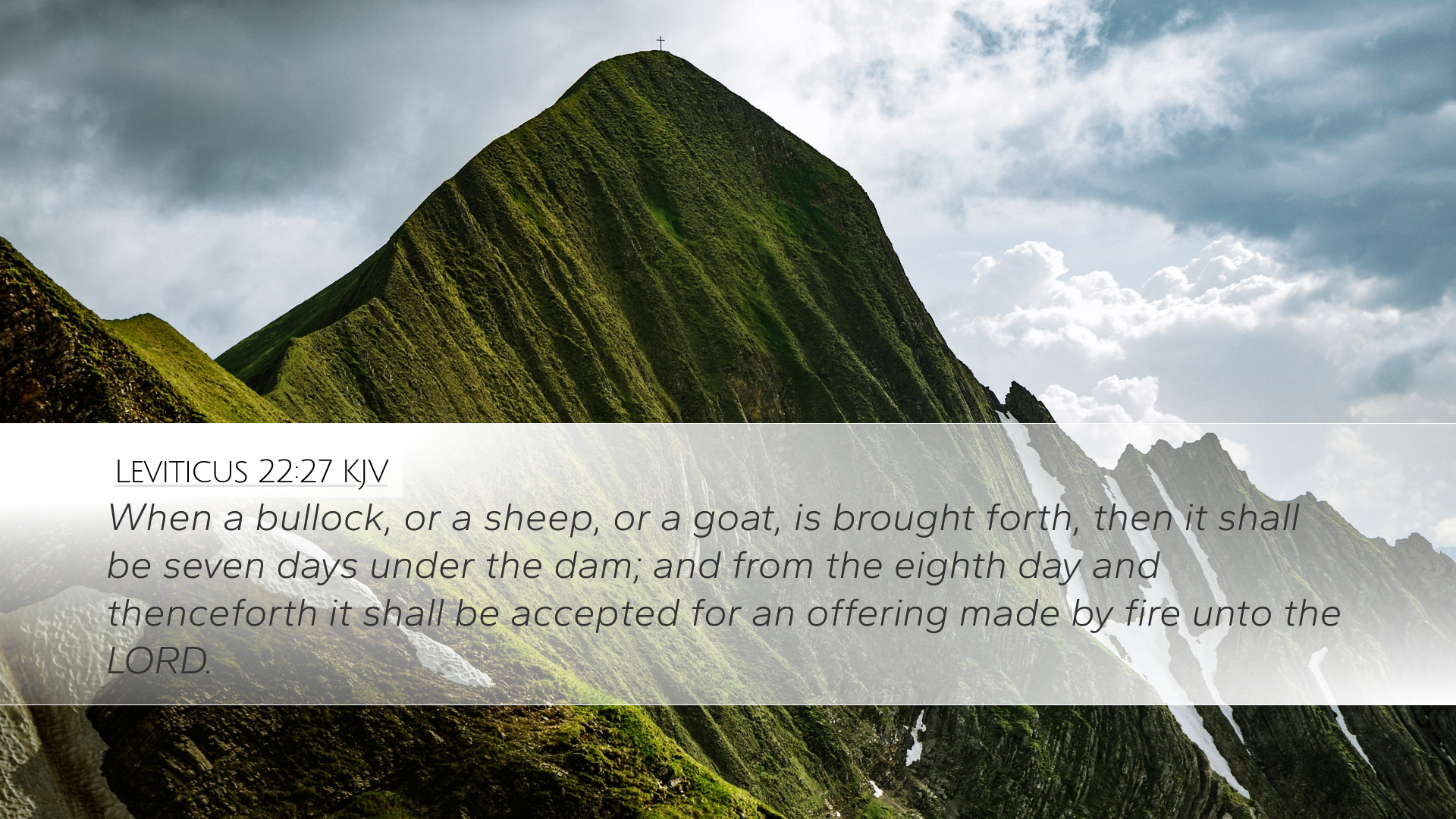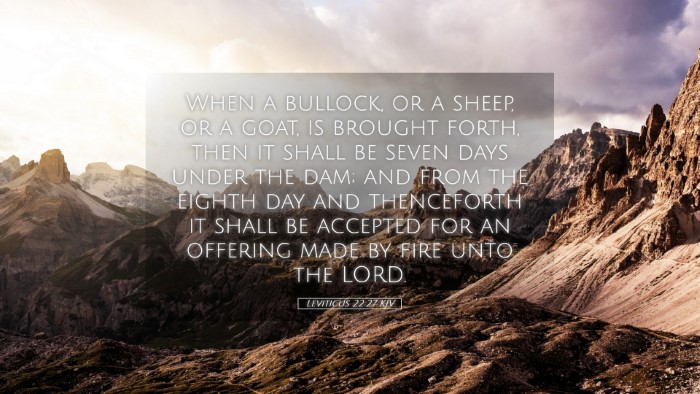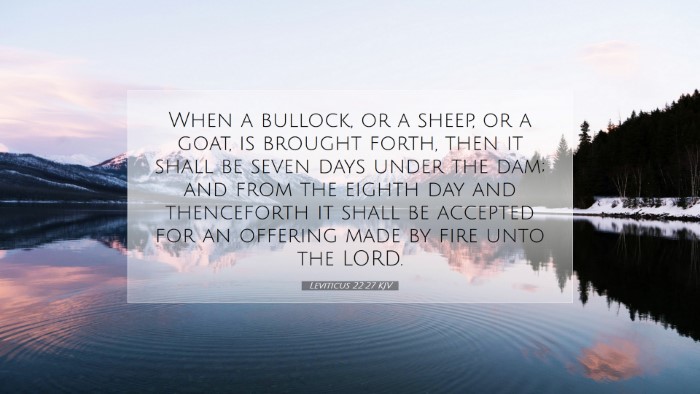Commentary on Leviticus 22:27
Verse Text: "When a bull, or a sheep, or a goat is born, it shall be seven days with its mother; and from the eighth day onward it shall be acceptable as an offering, a food offering to the Lord."
Introduction
The passage from Leviticus 22:27 addresses the protocols surrounding animal sacrifices in ancient Israel. Understanding this verse requires an appreciation of sacrificial law and the broader context of Levitical regulations, which were central to the worship and communal life of the Israelites.
Exegesis of Leviticus 22:27
- Animal Birth and Sacrifice: The verse sets forth the requirement that animals offered for sacrifice must first spend a full week with their mothers. This requirement signifies the importance of natural processes and timing in the sacrificial system.
- Symbolism of the Number Seven: The number seven in biblical literature often represents completeness and divine perfection. Here, the seven days with the mother symbolizes wholeness and readiness before being presented as an offering to the Lord.
- Acceptance of Offerings: On the eighth day, the animal becomes acceptable as a food offering. This transition from a period of nurturing to a time of sacrificial readiness illustrates a profound understanding of the relationship between life, nurturing, and offering.
Theological Insights
Matthew Henry's Commentary: Henry emphasizes the nurturing aspect of God's laws, illustrating how they are not solely focused on duty but also on the inherent goodness of creation. He notes how this regulation serves to remind the Israelites of the sanctity of life and the process of offering sacrifices to the Lord.
Adam Clarke's Commentary: Clarke highlights that delaying the offering until the eighth day underscores the need for animals to be physically mature and in good health. This maturity speaks to the quality of offerings that should be presented to God, reinforcing the sacramental aspect of worship.
Practical Application for Today
- Cultivating Patience: The seven-day waiting period teaches modern believers about patience and the importance of preparation in their spiritual offerings and lifestyles.
- Understanding Sacrifice: Today’s followers must recognize that the quality of what we offer to God—our time, gifts, and service—should reflect our best efforts, mirroring the care and conscientiousness required in the Old Testament sacrificial system.
- Life and Redemption: The symbolic cycle from birth to offering resonates within the Christian understanding of Christ, the perfect sacrifice who was nurtured, matured, and designated for our redemption.
Scholarly Reflections
Albert Barnes: Barnes notes that Leviticus is critical for establishing the holiness of God and the required purity in the worship practices of the Israelite community. The careful procedures outlined in this chapter reflect God's concern for the proper attitude and condition of those who approach Him in worship.
The meticulous approach to animal offerings underscores a theological truth: God desires our offerings to stem from a place of respect and recognition of His holiness. Thus, the care with which these laws were instituted and followed speaks to the greater narrative of God’s desire for intimate relationship with His people through atonement and worship.
Conclusion
Leviticus 22:27 serves as a reminder of the importance of offering our best to God. Through understanding the laws of animal sacrifice, biblical scholars, pastors, and students can draw parallels to modern worship practices, emphasizing that the heart behind the offering is of utmost importance.


